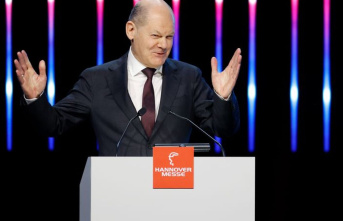The professional training (FP) - cut industrial is a thing of men. The parity in global studies from middle and higher level (42,7% and 49.8% of female students women, respectively) collides with the pronounced gender gap that has been installed in the cycles more technical: in Electricity and Electronics, they account for less than 5% of the student body and in the Transport and Maintenance of vehicles, 2.7%. The most blatant is the studies of Installation and Maintenance, where there are 24 women enrolled (by 1.8%). To revert these data, the Department of Education to issue a tuition of the students of higher grade who want to have access to the more cycles masculinizados.
MORE INFORMATION
FP, the subject is A pending FP contemporary of the future tendering of the centre of FP of the in Martorell is deserted“There is a cultural issue clear,” explains Joan Lluís Espinós, managing director of FP Department. The gender gap is perpetuated and repeated in the two training levels for VET. According to the data of last year, only 131 of the 3.080 students of higher cycles of Electricity and Electronics were girls. In the studies of Energy and Water, were 16. In contrast, in the course of Personal Image, they are 94.6%.
“When we enter families, including commercial, energy, mechanical or industrial installation, the gender gap is manifested in a concern”, supported by Espinós. But not all technical studies will display this gap, explains the general director of VET. “In the families of Chemical and Food we have a proportion more or less equal”, apostille. In the cycles that are linked to the world of food, the 48,59% are women; in Chemistry, they are the 44,37%. The majority presence of women in the cycles of higher degree is limited, in addition to Personal Image, to Administration and Management (65,8%), the health area (78,3%), to cultural services and to the community (85,4%) and in the field of textile and clothing (nearly 85% of those enrolled).
Only 5% of the students in the cycle of Electricity are women.
The gap is repeated in cycles of average degree. In the course of Wood of the Escola del Treball of Barcelona, Alba Basco is the only girl in the classroom. “I always liked manual work, but I thought it was more for boys and I studied teaching, and English Philology. But in the end, I said to myself: ‘you Have to do what you like’. And here I am,” explains this student of 28 years. He left a secure job and a fixed salary to devote himself to what he liked. “At the age of 16, the FP remains as something displaced, and in addition, there are a few roles, and this seems a bit of men. But we are just as valid to them to work manuals,” he claimed. In Catalonia, the cycles of media-Wood, Furniture and Cork have 35 girls, 10.8% of the total number of students enrolled.
More of the same occurs in studies of Mechanics. On the other side of the Wood workshop, in the main building of the Escola del Treball, dozens of kids are lost between the industrial machinery. Among the students of Mechanization, almost all men, appear Meritxell Navarro, 16, and Sofia Gorostidi, 17. They are part of the low 3.2% of women (52, in absolute numbers) enrolled in Mechanical Manufacturing. “I already knew from the beginning that there would be no girls. Nothing happens, I'm not going to die for being the only girl. If you like, you have to fight for it. Don't be afraid of what people say of you,” suggests Sofia. And match your companion. “At the end of THAT, I decided to try this cycle, which encompasses all the subjects that interested me. You can't ignore the stereotype. There are few girls because lack of information and the people who think that they will cut with the girls by doing a cycle of machinery, and it is not so,” ditch Meritxell. In the medium cycles of Electricity and Electronics, Civil Protection, Energy and Water, Mechanical, Wood, and Transport and Maintenance of vehicles, the percentage of girls do not reach the 5%. In Security and Environment, are the 0%.
The director-general of the FP focus on strengthening the guidance of the students
to revert To these figures, Education promotes, from this course, the enrolment of women in industry cycles of higher degree through a bonus of 50% on the price of the tuition. “We have professions identified culturally with the genre and have a lot of work to be done. We have applied this measure to eliminate the gender gap and address the needs of the market that has more trained people we have now,” says Espinós.
all in all, to combat the profound gender gap in these studies, the general director of FP advocates also work from the basic education “with models that reflect people with professional success in different sectors”. In addition, Espinós focus on strengthening the guidance of the students. “We must improve the training of counsellors, to define the content of the guidance from the equality of opportunities. The information in the guidance is important because the labour insertion in these studies is 100% and the salaries are very high,” warns the top position.
Date Of Update: 07 January 2020, 13:00





